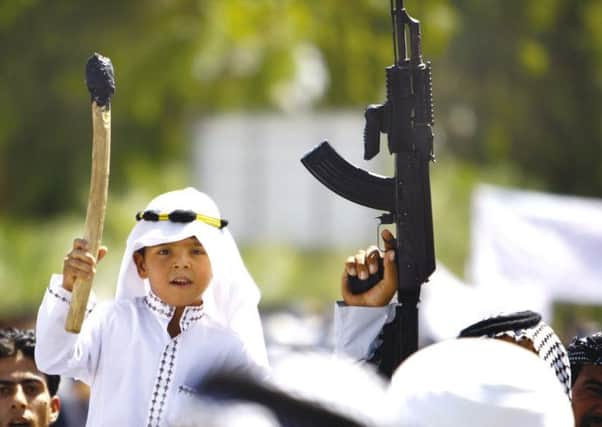Analysis: West far from blameless for Iraq chaos


The immediate cause is the war in Syria, where a local challenge to president Bashar al-Assad quickly became internationalised as the United States and the Gulf backed the opposition to a Russian- and Iranian-allied government. The US rapprochement with Iran should have been an opportunity to make peace in Syria. But the US priority has instead been nuclear diplomacy. And as western-backed Syrian opposition groups have struggled with limited resources, their rivals, the Islamic State of Iraq and al-Sham (Isis), linked to al-Qaeda, have been raising money in the Gulf states.
Now Isis is coming to Iraq to attack a government allied with its twin enemies: the US and Iran. It uses religious rhetoric to help justify this, though it may also include former members of Saddam Hussein’s secularist regime.
Advertisement
Hide AdAdvertisement
Hide AdIndeed, Iraqi prime minister Nouri al-Maliki suspects Isis is little more than a tool of his authoritarian Gulf neighbours, most of whom supported Saddam. And he is seeking support from Iran against the Isis threat.
But Isis could not have made such progress if Iraq’s own nation-building had not gone so badly wrong. The Iraqi army is far larger and much better armed. Yet it ran away from Mosul, having long felt unwelcome in a city where many regard the central government as illegitimate.
Mosul, fiercely opposed to the US-led occupation, saw large-scale protests against government corruption at the time of the Arab Spring. The Shiite-led government only angered people further by arresting many of the – mostly Sunni – demonstrators under anti-terror laws.
Just a few years ago, it was mainly Sunni fighters who took on al-Qaeda in Iraq. But instead of rewarding and integrating them, the government treated them as another set of potential terrorists. Today, the Iraqi government could beat Isis with the help of both Sunni and Shiite communities, and the Kurds, with their strong and loyal security forces.
Maliki was recently re-elected. He could use the government-formation process to offer real power-sharing. But asking for Iranian forces will only alienate swathes of Iraqi Sunnis, who see Iranian forces helping Assad slaughter the (mostly Sunni) Syrian opposition.
The Kurds, who see themselves as a distinct and historically oppressed nation and are already on their way to exporting their own oil independently via Turkey, will see even less reason to remain in Iraq now that the disappearing army has left a vacuum in key cities.
Yet again, Iraqis will be tempted to take refuge in ethnic and sectarian identities as the state fails to protect them.
Some western analysts argue that the rest of the world has no responsibility for conflicts in countries with their own ancient religious and ethnic divisions. But repeated western interventions in Iraq, as well as the sanctions of the 1990s, are among the factors that have contributed to a weak state, promoted a violent style of doing politics, and empowered canny but brutal elites.
Jane Kinninmont is the deputy head of the Middle East and North Africa Programme at the Royal Institute of International Affairs
SEE ALSO: